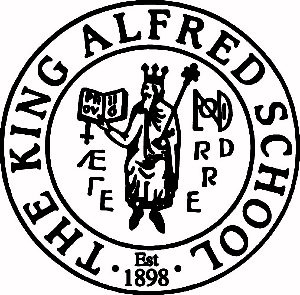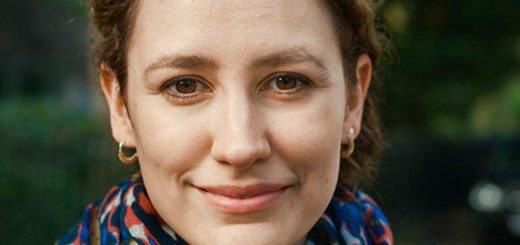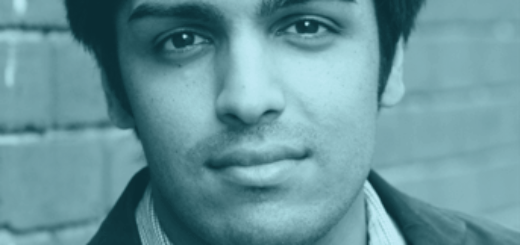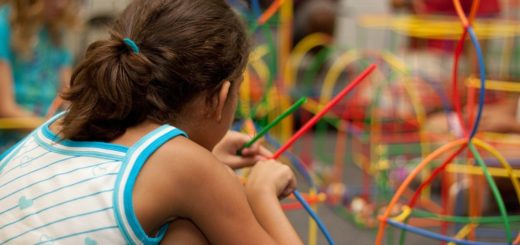Exclusive Interview with Mr Robert Lobatto, Headmaster of King Alfred School
Mums In The Wood interviewed Mr Lobatto, headmaster of King Alfred School (“KAS”) in NW11 on 9th June 2017. The very personable Mr Lobatto has been at the school for two years. Friendly and warm, I was both intrigued and interested with his approach. His passion for teaching, for making a difference was immediately apparent and his calm and focused approach to his students was refreshing.
Having grown up in North London, he started at Haberdashers at the age of 7 and went on to study History at Oxford. He started off in the state system and taught History in East Barnet, Humanities in Highbury Fields and was then appointed deputy head in East Lister Comm School at the age of 33. At the age of 40, he was appointed head of Bar Hill Community High in West London where he remained for 8 years. He has also been a part of setting up a multi academy trust.
Mr Lobatto is extremely experienced and has been the head of a school for approximately10 years and a senior leader for approximately17 years. While he is very committed to the state system and was a part of it for 25 years, in challenging, ethnically diverse areas of high deprivation, he found the conception of education under the state system, narrower and no longer in line with the reasons he went into teaching. With a conflict between what was right for the children v. what was right for the school in terms of league tables and OFSTED reports.
He smiled as he talked about his idealism upon leaving university and the reasons he went into teaching. Making a difference in someone’s life, giving a child a good start in life, being paramount in his decision. In management, he enjoyed the organisational aspects of making sure things ran smoothly and all the remedial work he was a part of.
On entering the independent sector, he talked about how he wanted to find the right school for him, one that was in line with his own values and philosophy of education. Being the “captain of his own ship” appealed to him and he talked about how much he learned about the independent world. The parental dimension, the different dynamics and the higher levels of productive communication. He still enjoys teaching and teaches A/Level history. 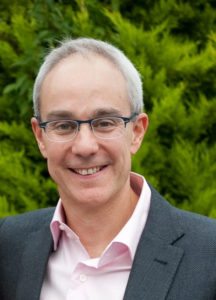
He was firm in his position that he regretted nothing and spoke with passion about the difference made to so many children’s lives. Now at King Alfred, he spoke about their value added results and the CEM tests used to gauge results. He spoke with pride as to how motivated the children were and talked about the different journey that children at KAS take. He was clear in his understanding, that this approach would neither satisfy not suit everyone. He stressed that there wasn’t just one way of measuring success. He was proud of the fact that at KAS the children have a different journey without any pressure. He sincerely believes that grades are only a proxy for learning and felt that in this competitive environment, “the tail of assessments are wagging the dog of learning”. He talked of how the children at KAS are motivated, they want to get results, they want to go to good universities and this is further developed to ensure that they maximise their achievement. His main aim was to make sure that the children are enthused about learning and that their learning journeys are not driven by the pressure to succeed at an examination.
Talking to Mr Lobatto, it was easy to see how comfortable he was in keeping to his educational and academic beliefs. In fact, one of the most resonant ideas he put forward has stuck in my head to this day. He talked about how the system was out of kilter and said that he was happy to wait for the “pendulum to swing back” and it would. He spoke of how meeting external expectations does not help with deciding who you are nor whom you want to become. He expressed concerns that sometimes, children who have been in very structured environments, rely on that structure even after leaving university and struggle to find themselves and decide what they want to do. At KAS, he emphasised how being less driven by testing, by not reporting testing data of children from age 7-9 to parents, the children are able to enjoy school and their learning journey. For the academically more able children, this system works very well, he continued, because they are then able to enjoy working and exploring outside of the curriculum and the exam structure.
Question:
Being one of the few co-educational schools that goes all the way from Reception to Sixth form, King Alfred’s is a popular choice with North London parents. What about King Alfred’s School do you think sets it apart from other North London schools?
Answer:
The first thing that sets King Alfred apart is freedom. We have a philosophy where there are minimal rules and where we genuinely encourage each individual to take internal responsibility for their own actions. Secondly, we have a strong tradition of maximising the well being of all our students and minimising unnecessary pressures. We put a lot of energy into this part of school life and it is supported by very trusting and informal relationships between staff and pupils. Thirdly, we work to a broad definition of success. We appreciate that each individual is different, take the time to understand their strengths and talents, and then work with the to make sure they are successful in their own terms, as opposed to a judging success against a “standardised’ template.
Question:
King Alfred’s School seems to lean more towards the Steiner model of schooling and has been mentioned on various parent forums as one having a similar ethos. Would you agree with that?
Answer:
We have some things in common with the Steiner approach; for example, we have a very child-centred philosophy and take a holistic view of each individual. However, we do this within a mainstream school structure and curriculum and have a strong emphasis on academic progress and outcomes alongside the personal development.
Question:
King Alfred’s school has a reputation for having a different approach to education i.e. a more relaxed and less exam oriented approach. Could you explain the rationale for this? Do parents who are more academically focused, feel comfortable with this approach and do you think the more holistic approach to education is something that parents take time to buy into?
Answer:
The best way to sum this up is our phrase, ‘same destination, different journey’. This means that our children end up in a very strong place academically at the end of their time here and I would argue that they do as well at King Alfred as they would in more traditional academic schools. However, the journey to get there is different. There is much less formal testing, much less emphasis on grades until 10 and much more commitment to a rich and rounded educational experience that goes beyond the exam syllabus. For us, this is important, as it embeds a love of learning that continues beyond the school experience, as well as making school a much more fulfilling and enjoyable experience.
Question:
There are many parents who increasingly feel that the admissions process into North London schools is too competitive and fraught with anxiety and unnecessary pressure on both parents and children. King Alfred’s School is seen as a viable alternative for parents who feel they want to protect their children from the competition and pressure. What are your views on this?
Answer:
Coming into the independent system I have been struck by the pressures on parents and children. I believe that pressure can be positive, but too much pressure becomes counter-productive. We do not over protect our students and we ensure that any pressures are age-appropriate and proportionate. It is important to me that there is positive challenge, and we see this on a day to day basis in the school.
Question:
With a non-selective admissions policy, what does King Alfred’s School do to make sure that its students can compete with those from academically selective schools?
Answer:
Academic outcomes have always been very important to me. When I worked in tough London schools, we would get pupils to Oxford and Cambridge from very disadvantaged backgrounds. At King Alfred, I’m equally committed to strong outcomes, but we just see a different path to achieve this.
Both GCSE and A-Level results are very strong and getting stronger. For example, the value-added scores for A-level results place us in the top 10% in the country. Our students go onto excellent universities, music colleges and art colleges. Each year, the vast majority of our students get into their first choice universities. This is achieved through high quality teaching, small classes with lots of personalised attention and outstanding personal support.
Question:
Having had experience in the state sector and now, the private sector, what about King Alfred’s School attracted you to accept the position and what similarities and differences do you see with running a school in the two sectors?
Answer:
I was attracted to King Alfred by the opportunity to develop and implement my own vision of education. I found that this was getting harder and harder in the state system and I was increasingly having to make decisions that would be best for the school rather than the individual child. The notion of results as the only judge of the quality of education has unfortunately distorted the whole system. At King lafred I have been able to reconnect with the reasons I originally became a teacher.
Question:
What is your vision for King Alfred’s School and how do you feel King Alfred’s School benefits from your experiences in the State sector?
Answer:
I see KAS as an oasis in the educational landscape.
We enable young people to be confident and comfortable with who they are, whilst academically successful and ready for the challenges of the 21st century. Independent-minded and creative thinkers, we nurture in all Alfredians a strong moral compass and a commitment to making a positive contribution to society.
The KAS journey is based on both strong educational principles and a deep understanding of child developement. It appreciates everyone for who they are and provides the freedom, challenge and support so that they can grow and develop in their own way. Sitting within the unique KAS community, our approach to education is ambitious and sets out to be a model to inspire and influence others.
Question:
What would you say is the make up of the students at King Alfred’s school?
For example, do you have a diverse mix of religions and cultures in the school? Is there a significant expat community? Are most of the students more or less local to the area?
Answer:
Our student body is drawn mainly from North and West London. We have a wide variety of children from different ethnic, religious and national backgrounds. Many people see King Alfred as something unique and therefore move closer to be near the school.
Question:
Would you consider introducing the International Baccalaureate (the “IB”) as an alternative to the National Curriculum exams? Do you feel that it would better reflect the teaching at King Alfred’s School?
Answer:
There are no plans to introduce the IB at the moment. We feel we can do what we need to, within the existing curriculum structure.
Question:
What provision does King Alfred’s School have for students who may need extra help or students who need extending?
Answer:
On the support side, we have an excellent learning support team in both the lower and upper schools. We have one -to-one interventions, small group work and support in the classroom. The key for me is that the right strategies to support the individual are identified and then applied on a day-to-day, lesson to lesson basis in the classroom. Our pupils who need additional support make excellent progress.
On the extension side, we have a strong programme for enrichment and extension throughout the school. This includes, for example math and science competitions, design challenges and debating workshops. Again, however, for me, the key is to ensure that there is challenge in every lesson and we use Bloom’s taxonomy to underpin this. Work in areas such as Art, Photography, Drama, Music and Languages have a national reputation.
Question:
What links does the school have with the local community and other local schools in the area? Are the students involved in any community or charitable projects?
Answer:
Social responsibility is a key part of our mission. I feel that it is very important that we nurture this in all our students and do not allow them to grow up in a bubble that is removed from the rest of society. Therefore we have a lot of charity and social action projects and have been further developing these over the last year. We work for example with students with disabilities at Oak Lodge, with students from very different backgrounds at WAC arts and with young people who are homeless through the Shelter Crashpad project. We also have strong links with the local community. This year, for example, we have held our annual educational conference, our well known fireworks event, our inaugural music festival and a recently introduced tea party for senior citizens.
Question:
How involved is the parent community in the school and what expectations does the school have of parents?
Answer:
Parents are a very important part of King Alfred. The school was originally set up by a group of of parents and therefore it is part of the DNA. In the Lower School, parents are able to drop their children off in the classroom each morning and collect them from the classroom at the end of the day. This gives them an opportunity to connect with the teacher and teaching assistant very informally and have a real understanding of what their child is doing. All Lower School classes have class representatives who organise parents to help in the classroom and on school trips. Upper School parents are also encouraged to get involved in the life of the school. All form and subject teachers are readily available to meet and speak with parents.
We have a great institution called KASBucks where parents can get coffee and pastries each morning and afternoon on site and this really helps to build the sense of community. We also have Friday cafe where each week parents and families in the school community can meet each other over tea.
We have an active Parent Staff Association that both nurtures the sense of community and also raises money for school projects. King Alfred is a very special community and parents are a very important part of our community.
Conclusions:
KAS is an interesting school. The children I spoke to, were relaxed, confident and many talked about wanting to become drummers and artists with the same enthusiasm as those wanting to go into more traditional careers. The school has a large play area and there is a sense of freedom when walking about the grounds. One child was proud to point out a little pond in an area housing a few chickens and tell me how his dad made the pond for the school. Although the school has minimal rules, it does have a very strong anti-bullying policy. Children are sat with and talked to, they are taught to internalise what they’ve done and take responsibility for their actions. Boundaries are set and the perpetrator is worked with to understand what has happened. If it is sustained and deliberate unkindness, that is not tolerated. Being co-ed throws up its own issues in relation to cliques and friendships. When asked about this, Mr Lobatto was clear that the school does put emphasis and on making and sustaining friendships, giving the pupils the skills they need to navigate social issues and provide a good foundation through PSHE. There is a counsellor on site and there is also group support available. In terms of cultivating a community spirit within its’ boundaries, the school also has the “Village project” through which children learn to work together and deal with social norms and peer pressure. A phone fast has been put in place for Years 7 and 8 and there will be a conference in November this year on adolescents and phones.
A lot of work is put into balancing discipline and respect and the school has a mutual respect policy. There is an understanding that no matter how much you teach a child, there will be instances where they get things wrong, which is alright. Mr Lobatto was clear that unless you allow a child to get something wrong, how would they know how to get it right? He explained that is was all part of growing up and that the school placed a lot of importance on guiding and helping their students throughout their time at school.
There is a good gender balance within the staff members and the nursery is nothing short of amazing. Sharing the Anna Pavlova gardens, the reception and Year 1 playground houses an old gypsy caravan, a secure pond and lots of beautiful trees and pathways. It is in short breathtaking. Perfect for little ones to explore and enjoy.
As Mr Lobatto succinctly put though, the KAS philosophy is something that parents must understand and buy into before they decide on the school for their child. If , as he mentioned, you let the North London parent peer pressure get to you, then KAS is probably not the right school for you. Parents who send their children to KAS must embrace the values and ethos of the school and be prepared to align themselves with what the school stands for. KAS, will as Mr Lobatto confidently states, while building trust with its parent community, also focus on a child centric system that works towards providing happy children who are self-aware, successful in their own right and on their own terms, able to build social relationships and understand their social responsibilities to the outside world. If this is what you want for your child, then KAS will probably be the right school for you.



